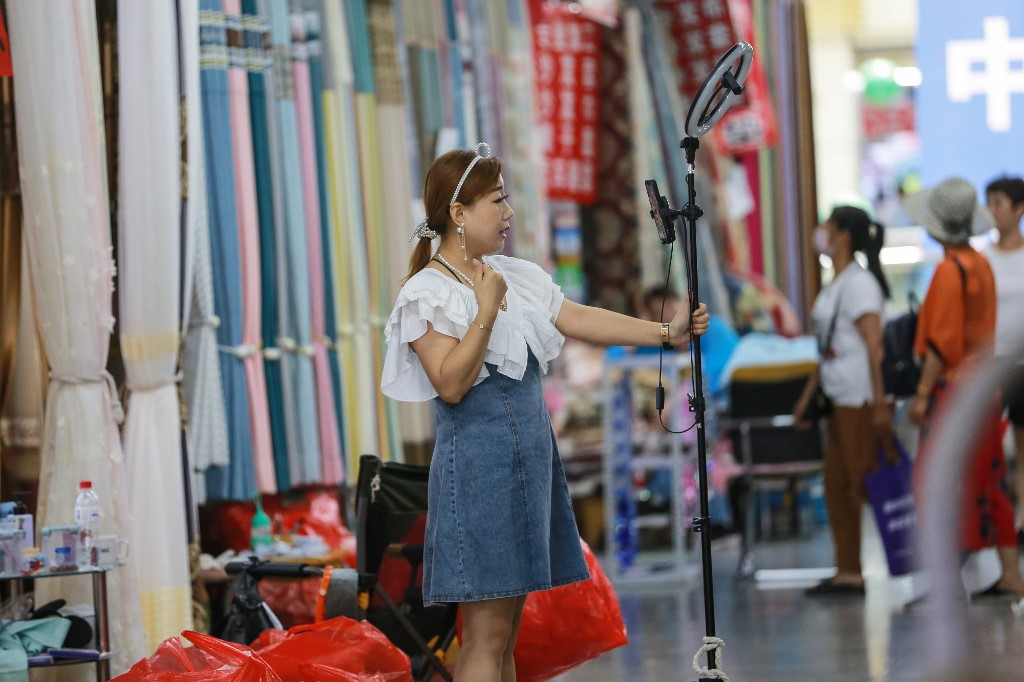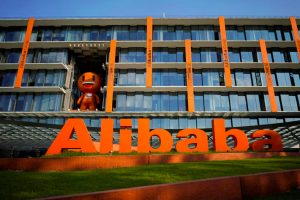(ATF) In 2020, live broadcast e-commerce was almost everywhere in China. As ATF reported the Double-11 online shopping event, which was mostly boosted via live streaming clocked of over 372 billion transactions.
However, it should be noted that with the surge in live broadcasts, problems have arisen – in fact “chaos” was the term used by Qilu Evening News and other media. Chinese politicians generally only use that term when something goes dramatically wrong. In the second half of last year, government officials introduced a range of new policies and rules to regulate live e-commerce.
So, entering 2021, live online broadcasts are likely to be different. Chinese fintech firms have faced anti-trust investigations, while large e-commerce platforms are also operating under anti-monopoly rules. Some live broadcasters have been accused of getting “out of hand”. E-commerce celebrities being punished for tax evasion. Slips of the tongue could stir official anger, so textbooks and standards are being introduced.
In 2020, all walks of life got together and started broadcasting, setting off an upsurge in the sale of goods to and from living rooms across China. At the same time, many government agencies and big firms vigorously supported the live-steaming e-commerce sector. But with millions live broadcasting in a state that has fixation with control of the media, there was bound to be a tipping point as the continuous flow of ways to create ‘new business formats’. It was always on the cards.
Live-streaming for e-commerce heated up rapidly, due to factors such as the relatively low barriers to entry, the unpredictable nature of live broadcasts, and negative aspects – false propaganda and data fraud were constantly being exposed.
Market needs a rejig
In November, the State Administration of Market Supervision and Administration said it would strengthen the supervision of live online marketing by clarifying the legal responsibilities of relevant entities. Activities would be strictly regulated, with illegal activity investigated and dealt with in accordance with the law.
In the same month, the China Consumers Association released an analysis on public feelings about protecting consumer rights “Double 11”. Monitors found that negative consumer information happened mainly in live broadcasts. The problems with well-known anchors during that period were detailed.
Sellers on live-streamed shows appear to be complying amid the handover to a new work format in the product selection process, pre-sales and after-sales service, and consumer rights protection. People can gain an advantage if they win the trust of consumers amid fierce competition; that could earn brand and platform support.
Industry insiders have said that with the rapid development of live e-commerce, anchors can’t just focus on performance and data, they also have certain audit obligations for the goods or services they promote.
So, is there a dividend period for high-speed growth in live broadcast e-commerce in the future? A survey conducted by the Ali Research Institute shows that 45% of brands are still confident in the development of live e-commerce and believe that it will continue to maintain rapid development, while 24% of brands believe that live e-commerce will enter a period of stable development.
Industry insiders believe that in the future, emerging brands or supply chain sources that are on the rise should continue to exert efforts on live-streaming channels. The flat structure of the live broadcast, the ability of traffic bursts, and the relatively low brand investment can help new brands promote themselves in shorter cycles, while reducing costs, and drawing traffic.
New regulatory environment
Many big cities got into this. At the end of 2020, regulators in Shanghai issued a ‘Notice on Several Measures to Promote the Innovative Development of Live Streaming E-commerce in this City’, which gave the live broadcast e-commerce industry a boost. The notice proposed speeding up moves to make Shanghai an international consumer city, by fostering and develop a new online economy, and creating a platform for live e-commerce shows. It also proposed certain measures for live broadcast platforms, plus e-commerce bases, MCN institutions (companies set up by celebrities), and live broadcast service organizations. The policies aimed to develop the “live broadcast and life service industry,” in Shanghai.
Meanwhile, Hangzhou, Jack Ma’s home city, which has always been open and supportive towards live e-commerce, issued a series of supporting policies. The city’s Municipal Bureau of Commerce proposed to grant live-streaming companies with outstanding contributors yearly quotas each year and a subsidy for children enrolling in school, people buying their first house, etc.
Guangzhou also issued a Live Broadcasting E-commerce Development Action Plan (2020-2022) that proposed 16 policies and measures in a bid to make the southern city a well-known online live-broadcast capital as well.
Zhejiang’s Yiwu city released the country’s first textbook to help train people with a talent for live broadcast selling. Some of these measures have been implemented in various places to provide new opportunities for the industry.
So, the accelerated formation of business formats will receive strong support. And the implementation of these policies will help the sector and businesses to take root on large platforms and large ecological environments. However, some industry experts said that local development of live e-commerce should avoid ‘homogeneous competition.’
Brand broadcast shops
In the past year, live e-commerce has become the biggest outlet and the latest economic growth model. It has also become the main track for competition in all walks of life.
At the beginning of last year, Guangzhou held an International Live Broadcast Industry Expo. This helped the broadcast shop agency operation become a new track for capital investment.
Different from online celebrity live broadcasts, broadcast shops are not dependent on online stores on platforms such as Taobao and Jingdong, but operated through professional live broadcasts in branded live broadcast rooms. In this way, the live broadcast room takes on the functions of “drawing new traffic, customer service answering, conversion guidance, product use experience, private domain traffic operation”, and display a more authentic and comprehensive side of the corporate brand, thus playing a role in the entity.
According to a Live Broadcasting New Economy Report 2020 released by Taobao, the transaction growth rate exceeded 150% over the past three years. On February 11, 2020, Taobao Live announced that all offline merchants could broadcast for free, even those without Taobao stores. The number of new merchants soared by 719% over January, and more than 100 professions moved to its live broadcast room within a month.
Since the development of live online broadcasts, the value of branded broadcast stores has become increasingly prominent. Different from the fancy-looking talents who bring goods, the interaction time between brands and consumers is longer, and businesses can display richer knowledge. There is a lot of room for innovation and entertainment in the form of stores self-broadcasting.
A reporter from China Business Daily looked randomly at several live broadcast rooms on a live broadcast platform and found that the brands’ rooms were very distinctive, and included special events such as the New Year’s Festival, food specials, fashion shows, as well as celebrity live broadcasts, virtual anchors, and other gimmicks. Hipster elements have crept in, with Bosideng moving to offline fashion shows into the live broadcast room, and other brands showing tea picking on location.
According to industry insiders in the National Live Broadcasting environment, the interaction time between brands and users has become longer. Brands do not have to express their sales goals as straightforward and urgently as advertisements, but can narrow the distance with consumers and improve the conversion rate of the store live broadcast.
























